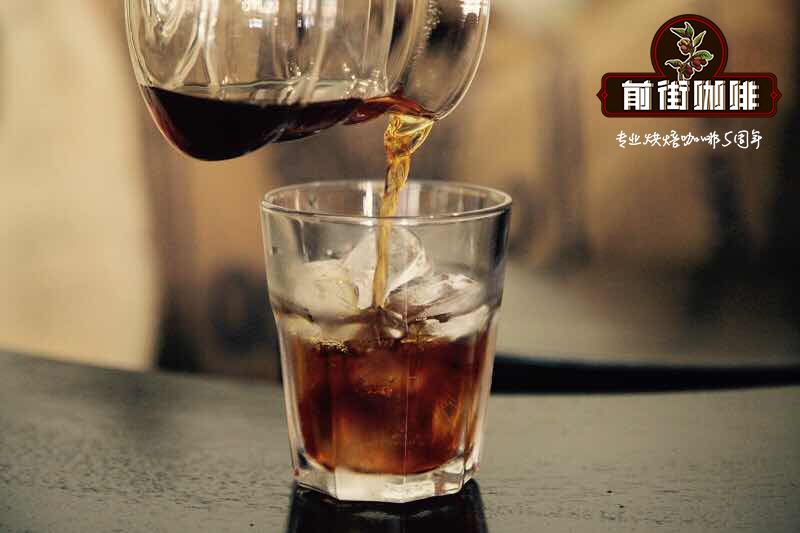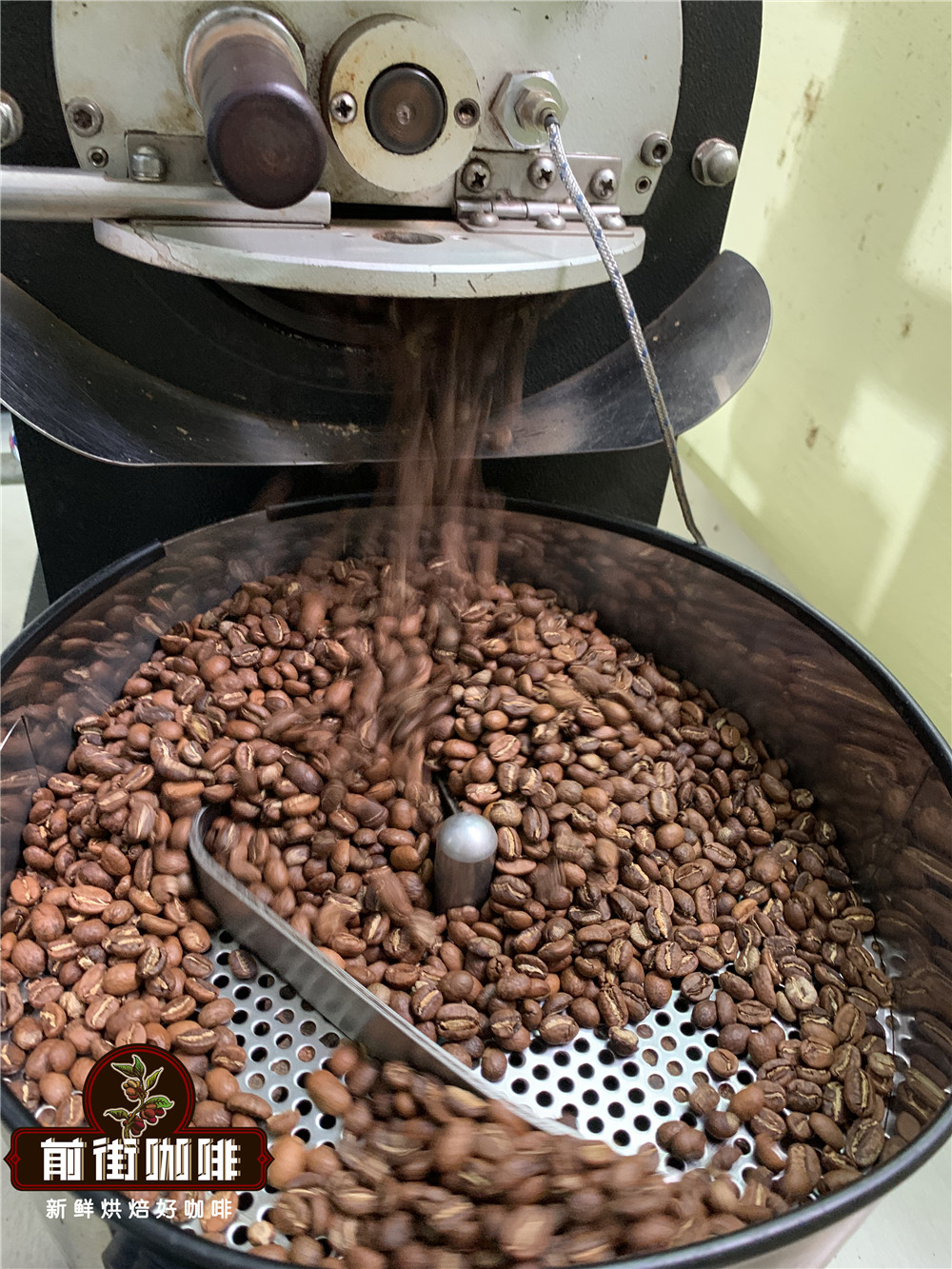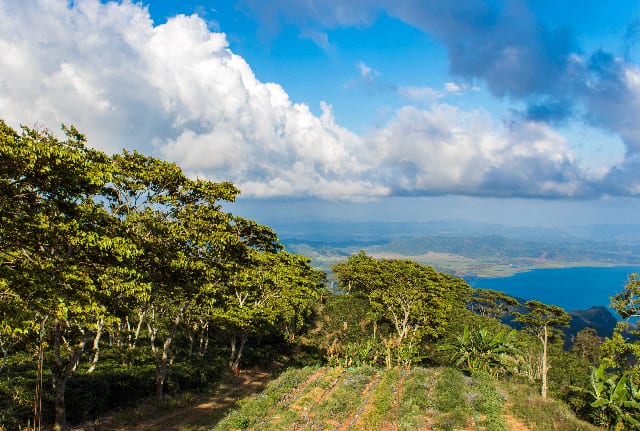How do you get the flavor of coffee? Does the water quality of brewing coffee have any effect on coffee?

Professional coffee knowledge exchange more coffee bean information please follow the coffee workshop (Wechat official account cafe_style)
Which factors determine the flavor?
People should be very vague about the word flavor. What on earth is good coffee? To put it more simply, who has the final say that coffee tastes good?
In fact, I think the answers are "it's up to you", "it's up to everyone" and "it's up to most people"!
After drinking a lot of beans from different places, "coffee connoisseurs" such as bakers and bakers have their own ideas about flavor, and if you study this field carefully, you will find that the topic everyone revolves around is: "what is a good flavor?" "and" how is the reason why it tastes so good? "in fact, to put it simply, there are several characteristics:
1. The "concentration" of coffee
The intensity of coffee usually affects customers' evaluation of coffee. More cautiously, if the flavor is too light, it may not be easy to show its own aroma and concentrated flavor; and too strong flavor will cause "too bitter" or "too sour" taste. In Taiwan, there are relatively few people who like to drink espresso, and they generally drink coffee in the same concentration as American coffee, so the most intuitive thing for ordinary customers is to drink coffee and feel its "intensity" first.
two。 How many flavors do you have? Very many kinds!
In fact, there are many flavors of coffee, such as the peach and citrus aromas of African beans, the spicy herbs of Mantenin, the drupes of Brazil, and the sweetness of plums, roasted hazelnuts and caramel.
These aromas are experienced by "cup testers" or "raw bean merchants" from many raw bean samples in the process of baking and testing.
And the flavor of coffee is not always floral and fruity, sometimes it will taste like potion and leather, and secretly tell you that what most people often drink but can't feel is actually the taste of "rubber band" and "ironclad" XD (many people must not believe it)
In fact, in Taiwan, self-baking businesses can be regarded as a situation in which a hundred schools of thought contend. Needless to say, everyone will want to show their own aroma as an attractive selling point.
3. Sense of balance: the blending of bitterness, sweetness and acidity
The topic of "sense of balance" is actually very subjective. In terms of coffee scoring criteria, "balance" mostly refers to "is the acid too sour?" Is the bitter taste too strong? Is it too thin to drink? Will it be very astringent (scrape the mucus off the tongue)? "and" what is the overall comfort of the entrance? "these indicators.
In fact, everyone's acceptance of "bitterness" varies greatly. For example, some of my friends argue: "if you drink coffee, you must add sugar!" "and we gluttons, like us, are actually fascinated by authentic things, XD.
As a matter of fact, coffee can drink the "sweetness" it should have without adding sugar. in the evaluation and supervision of coffee, the better the sweetness, the higher the price. For example, can good tea drink its original "sweet" without adding sugar?. The same is true of coffee.
The thin "acid value" is also a factor in the score, and there is also a great difference in the acidity of coffee, with a slight difference between "acid like ripe peach" and "acid of industrial research vinegar". When drinking coffee, we often hope that the "sour feeling" is not too strong, too thin, soft as ripe fruit is just right, otherwise it will take away the taste of the original protagonist "coffee" and become the original cause of drinking vinegar or lemon juice!
PS. "sour taste" is usually the smell of very bad coffee. It is commonly found in excessive or contaminated raw coffee beans during fermentation, especially in "first-class defective beans".
First of all, we briefly introduce that water, H2O, is a polar molecule with both positive and negative characteristics, which can be attracted by positive charge, that is, the part of hydrogen, and anion, or by negative charge, that is, the part of oxygen ion combines with cation, so water is a good solvent.
In the process of extracting coffee, polar substances, such as ionic salts, acids and bases, will be dissolved by water at a certain water temperature, because these substances have a smaller molecular weight and are easier to come into contact with water molecules. as to how much the ratio will be extracted depends on the solubility and water temperature of the substance, if the water temperature is not high enough to overcome the attraction between ions. Then these substances cannot be extracted by water.
Then after ionic substances, polar substances with covalent bonds, such as carbohydrates and carbohydrates, are then extracted. similarly, too low water temperature does not provide enough melting power. Macromolecules with poor solubility, such as chlorogenic acid and trigonelline, as well as some cellulose and grease will be carried out by water in the latter stage, followed by solids (solids) and gases. The solubility of solids is proportional to temperature, while that of gases is the opposite.
The stage of extraction and senses
The extraction order of these substances will affect the senses. For example, if a cup of coffee is extracted only in the pre-harvest stage, it is conceivable that ionic acids, bases, and salts will be dissolved first, and the coffee will taste sour and salty. Together, the two tend to feel astringent. In addition, highly volatile polar aroma substances will also appear in the first stage, when the coffee will have aroma. Carbohydrates are in the second stage, in which the main influencing factor is water temperature, and the other is the way of cooking. If brewing by soaking, consider that the liquid of soaking coffee already contains a large number of first-stage substances, if these substances are saturated, the carbohydrates will not be easily dissolved (hand flushing as far as possible to wait for the water to drop before boiling water can also prevent this from happening, avoid using too low powder-to-water ratio, and race wind to avoid stewing). If it is only cooked at this stage, I think it tastes sweet but there should be no alcohol thickness (body). Therefore, after further extraction, the oil and cellulose will come out, some of the oil will have aroma, and the coffee should have a mellow feeling. In addition, chlorogenic acid and trigonelline, which affect the taste of coffee, will increase with the time of extraction, so it will be slightly astringent, but if coffee beans are properly roasted, the amount of chlorogenic acid will decrease, and relatively, the less chlorogenic acid will be dissolved, once its concentration is lower than a certain threshold (threshold), it will not be easy to feel. A cup of coffee with a full sense of balance and smooth taste is done.
Once we have mastered these basic principles of extraction, coupled with the sensory knowledge of the balance between sour, sweet and salty, we can adjust a cup of coffee by brewing, and then a cup of salty coffee, a cup of sour coffee, or a cup of astringent coffee. It won't be difficult to adjust it by brewing.
END
Important Notice :
前街咖啡 FrontStreet Coffee has moved to new addredd:
FrontStreet Coffee Address: 315,Donghua East Road,GuangZhou
Tel:020 38364473
- Prev

Coffee beans are light, moderate and deep roasting flavors. Taste distinguishes where the sweet and sour feelings in coffee beans come from.
Professional coffee knowledge exchange more coffee bean information please pay attention to the coffee workshop (Wechat official account cafe_style) roasting meaning 1, the definition of roasting so-called coffee roasting (coffee roasting) refers to the heating of raw beans, to promote a series of physical and chemical reactions inside and outside of coffee, and in the process to produce coffee sour, bitter, sweet and other flavors, shape
- Next

[coffee planting] how should coffee producers deal with unexpected weather conditions?
Professional coffee knowledge exchange more information about coffee beans Please follow the coffee workshop (official Wechat account cafe_style) in early July this year, coffee producing areas in Brazil were hit by frost. Coffee crops are being harvested, but weather conditions are expected to have an impact on next year's yield. When frost strikes, you can hardly protect your crops. But there are ways to deal with other unexpected days.
Related
- Beginners will see the "Coffee pull flower" guide!
- What is the difference between ice blog purified milk and ordinary milk coffee?
- Why is the Philippines the largest producer of crops in Liberia?
- For coffee extraction, should the fine powder be retained?
- How does extracted espresso fill pressed powder? How much strength does it take to press the powder?
- How to make jasmine cold extract coffee? Is the jasmine + latte good?
- Will this little toy really make the coffee taste better? How does Lily Drip affect coffee extraction?
- Will the action of slapping the filter cup also affect coffee extraction?
- What's the difference between powder-to-water ratio and powder-to-liquid ratio?
- What is the Ethiopian local species? What does it have to do with Heirloom native species?

